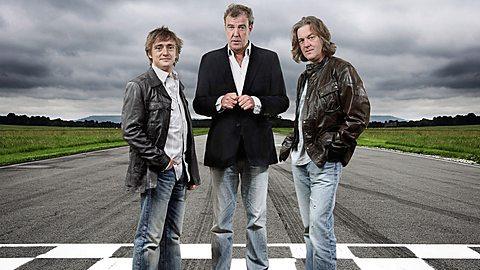Top Gear: Some Kind of Monster
- Published
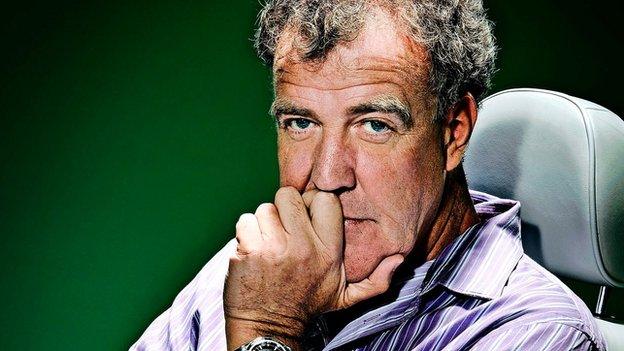
For scores of fans, Clarkson was the main reason to watch Top Gear
In the book Fuzzy Monsters - Fear and Loathing at the BBC (which details the ups and downs of the BBC in the 1980s and 90s) there's one reference to Top Gear.
It's described as a punishment posting meted out to producers who crossed the line - a sort of Siberian exile in the West Midlands.
I'm not sure whether that was entirely true - but it certainly reflects a feeling that the BBC Birmingham programme was decidedly "uncool". Indeed, it was so unloved that the format was retired in 2001.
Compare that with today. The show has won a Bafta (indeed it's had six Bafta nominations over the years) it's the most watched factual programme in the world and it's one of the BBC's biggest money spinners.
It's all down to the reinvention of the programme by Jeremy Clarkson and his old schoolfriend, producer Andy Wilman.
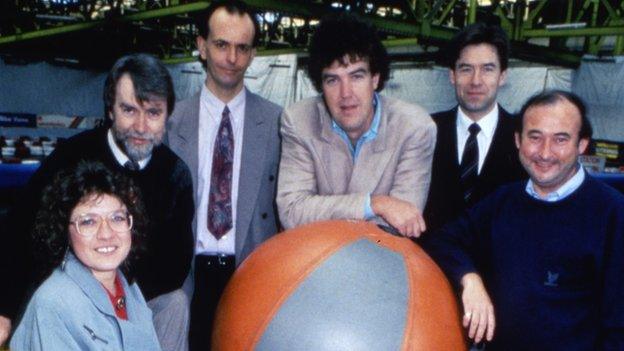
The presenting line-up of 1992 had just one familiar face to today's viewers
Turning a programme about cars in to a programme about three cartoon character blokes having disasters in cars has meant it reaches audiences other parts of the BBC don't.
Children and teenagers make up a large part of its viewership but it attracts people of all ages - 40% of viewers are female and it's a global success.
And, I think, its chief attraction is its status as the BBC's anti-BBC programme. The delight Top Gear takes in avoiding anything deemed worthy or "public service", and saying the "unsayable" requires that it be surrounded by programmes that are serious and anxious to not offend.
Its "rebel" status depends on it having something to rebel against. That's perhaps one reason Jeremy Clarkson says it really only works on the BBC.
It is also Jeremy Clarkson's programme. The script, the style - it's entire worldview is a reflection of its central star.
Top Gear may survive without him but it won't be the same. There's a reason why crises like these didn't happen when Angela Rippon was the presenter.
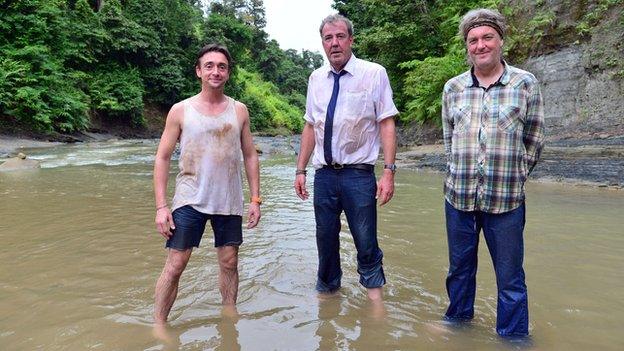
The programme has shot episodes all over the world
Of course, "saying the unsayable" and being the corporation's "juvenile delinquent" is always going to result in a programme that teeters on the edge of disaster.
Which makes it all the more surprising that "off camera" behaviour has led to its biggest crisis.
Last year, Ofcom censured the programme for using the word "slope" to refer to an Asian man. It has also been home to casual insults about Mexicans, Germans, Albanians and Romanians.
Almost every article about Top Gear ends with a list of people Jeremy Clarkson has upset in the past. The skill of the programme (beyond the brilliance of the film-making) is knowing where the limits are and dancing around them.
The leaking of an unbroadcast clip of Jeremy Clarkson saying the rhyme "eeny, meeny, miney, mo" showed that Clarkson and his team knew when he had crossed the line. That's why the clip never appeared on air, and why Clarkson made a filmed apology when it came to light.
The presenter admitted then that he was on his final warning.
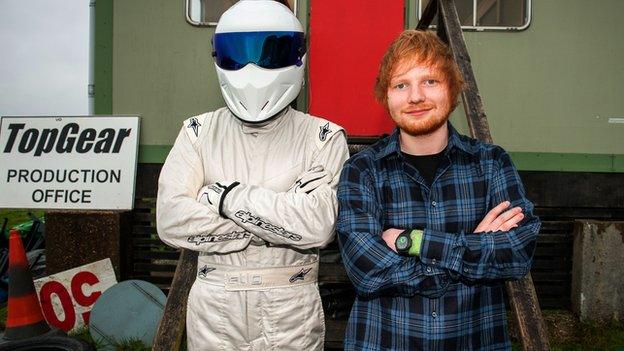
The Star in a Reasonably Priced Car attracts high profile fans such as Ed Sheeran
However, the issues surrounding the "fracas" with a producer have little to do with Top Gear's other controversies.
This was not about crossing the boundaries of harm and offence with viewers - this was simply a matter of the limits of acceptable conduct at work.
The BBC has just revised all of its bullying and harassment guidelines, and one of the fundamental issues the corporation faces is that most TV and radio revolves around powerful presenters who determine the success or failure of a programme; and the production team's job is to get the best out of the "talent".
This balance of power can lead to people feeling they cannot complain about unacceptable behaviour. Clarkson's altercation has become a test case for the BBC's resolve to treat these issues fairly.
The backstory of Clarkson and the BBC simply added rocket fuel to the crisis.
- Published25 March 2015
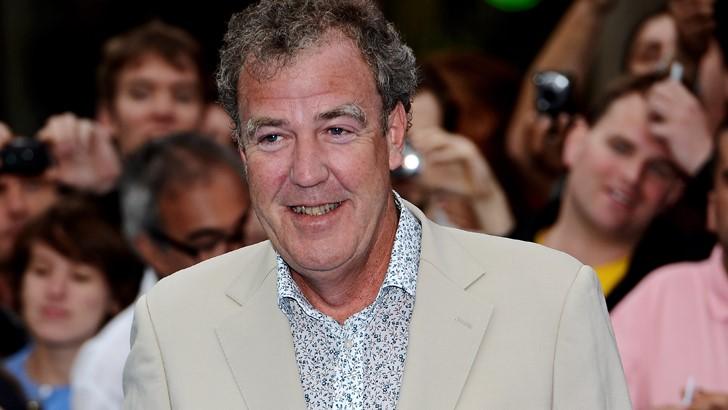
- Published22 March 2015
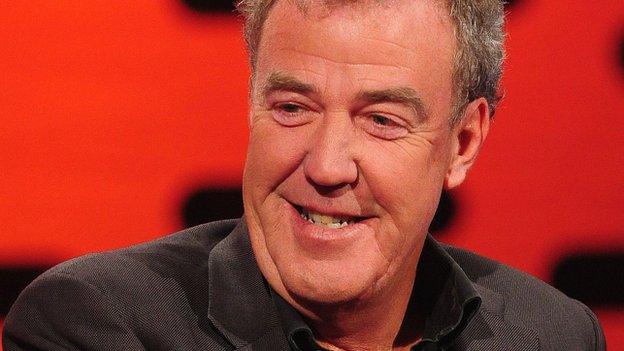
- Published20 March 2015
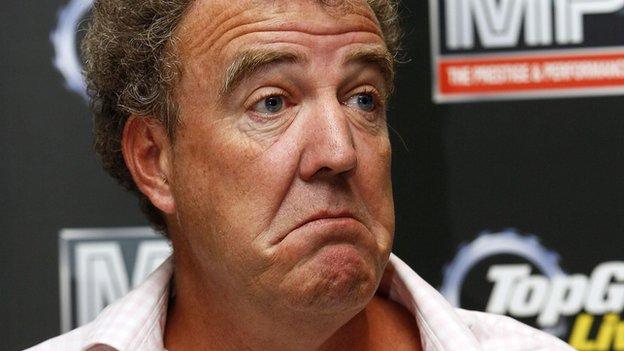
- Published20 March 2015

- Published3 October 2014
